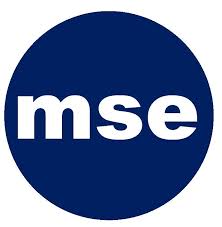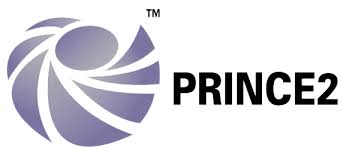
Compensation ,Benefits and Employee Relations
Course ID: 2512285701443EGI
Course Dates : 28/12/25 Course Duration : 5 Studying Day/s Course Location: Bahrain, Bahrain
Language: Bilingual
Course Category: Professional and CPD Training Programs
Course Subcategories: Human Resources and Talent Development
Course Certified By: * Projacs Academy
* Professional Training and CPD Programs
Certification Will Be Issued From :
KSA
Course Fees: £2,958.13
Vat Not Included in the price. VAT may vary depending on the country where the course or workshop is held.
Click to Pay
Contact us for more information Sales@e-s-hub.com
Course Information
Introduction
Compensation, benefits, and employee relations are foundational pillars of human resource management that directly influence organizational success. These areas not only shape an organization’s ability to attract and retain top talent but also foster a workplace culture that drives engagement and productivity. In an era where employees increasingly prioritize work-life balance, financial security, and meaningful professional relationships, organizations must adopt strategic approaches to meet these expectations. This course is designed to equip professionals with the tools and insights necessary to design, implement, and manage compensation structures, benefits packages, and employee relations frameworks that align with both organizational goals and workforce needs.
The modern workplace faces significant challenges in balancing competitive compensation practices with budgetary constraints while ensuring compliance with evolving labor laws. Additionally, the rise of remote work and globalization has introduced complexities in managing benefits across diverse employee populations. Organizations often struggle to address gaps in knowledge around equitable pay structures, non-monetary incentives, and conflict resolution strategies. By addressing these challenges, this course seeks to empower HR practitioners and leaders with the expertise needed to navigate these complexities effectively.
Understanding compensation and benefits goes beyond simply determining salaries or offering health insurance plans. It involves leveraging frameworks such as Maslow’s Hierarchy of Needs and Herzberg’s Two-Factor Theory to create systems that motivate employees and enhance job satisfaction. Similarly, effective employee relations require proficiency in communication, negotiation, and conflict resolution—skills that are critical for maintaining harmonious workplaces. Real-world examples, such as Google’s renowned employee perks or Patagonia’s emphasis on work-life integration, demonstrate how innovative strategies can yield tangible business results.
For individuals, mastering the content of this course translates into career advancement opportunities and enhanced credibility within their field. Professionals who can design and advocate for fair compensation practices or mediate disputes effectively become indispensable assets to their organizations. On an organizational level, well-managed compensation, benefits, and employee relations programs reduce turnover, improve morale, and contribute to a positive employer brand. According to a study by the Society for Human Resource Management (SHRM), companies with robust employee engagement initiatives experience 21% higher profitability compared to those without.
This course draws upon established theories, industry benchmarks, and emerging trends to provide participants with a comprehensive understanding of best practices. For instance, total rewards models have gained traction as organizations recognize the importance of combining monetary and non-monetary incentives to meet diverse employee preferences. Furthermore, recent shifts toward mental health support and flexible working arrangements underscore the need for adaptive benefits strategies. Participants will explore case studies from leading organizations to gain practical insights into implementing these concepts.
Ultimately, this course serves as a bridge between theoretical knowledge and actionable skills. Whether addressing pay equity concerns, designing inclusive benefits programs, or resolving workplace conflicts, participants will leave equipped to make informed decisions that benefit both employees and employers. The ability to navigate these interconnected domains is essential for fostering resilient, high-performing teams in today’s dynamic work environment.
Objectives
By attending this course, participants will be able to:
Analyze the components of a comprehensive compensation strategy aligned with organizational objectives.
Evaluate existing benefits programs to identify gaps and propose improvements based on employee feedback and market trends.
Design conflict resolution protocols that promote fairness and transparency in employee relations.
Implement policies that comply with national and international labor regulations related to compensation and benefits.
Apply principles of equity and inclusion to ensure fair treatment across all levels of the organization.
Develop communication plans to articulate changes in compensation, benefits, or employee relations initiatives effectively.
Assess the impact of total rewards programs on employee retention and organizational performance using data-driven metrics.
Who Should Attend?
This course is ideal for:
HR managers and specialists seeking to deepen their expertise in compensation and benefits administration.
Team leaders and supervisors responsible for fostering positive employee relations within their departments.
Consultants advising organizations on workforce strategy and policy development.
Business owners looking to establish or refine HR frameworks in alignment with industry standards.
These groups will find the course valuable because it addresses key pain points such as attracting top talent, managing employee grievances, and ensuring legal compliance. While prior HR experience is beneficial, the course is structured to accommodate intermediate learners who already possess foundational HR knowledge but wish to advance their capabilities in specialized areas.
Training Method
• Pre-assessment
• Live group instruction
• Use of real-world examples, case studies and exercises
• Interactive participation and discussion
• Power point presentation, LCD and flip chart
• Group activities and tests
• Each participant receives a 7” Tablet containing a copy of the presentation, slides and handouts
• Post-assessment
Program Support
This program is supported by:
* Interactive discussions
* Role-play
* Case studies and highlight the techniques available to the participants.
Daily Agenda
The course agenda will be as follows:
• Technical Session 08.30-10.00 am
• Coffee Break 10.00-10.15 am
• Technical Session 10.15-12.15 noon
• Coffee Break 12.15-12.45 pm
• Technical Session 12.45-02.30 pm
• Course Ends 02.30 pm
Course Outlines
Foundations of Compensation Management
Understanding compensation philosophies and their role in organizational strategy.
Key components of base pay, variable pay, and bonuses.
Analyzing salary surveys and benchmarking data.
Legal considerations in compensation planning (e.g., equal pay legislation).
Day 2:
Designing Effective Benefits Programs
Types of employee benefits: statutory vs. voluntary offerings.
Trends in benefits design, including wellness programs and parental leave.
Evaluating ROI on benefits investments through cost-benefit analysis.
Addressing generational differences in benefit preferences.
Day 3:
Principles of Employee Relations
Building trust and psychological safety in the workplace.
Techniques for resolving workplace conflicts and grievances.
Promoting diversity, equity, and inclusion in employee interactions.
Best practices for conducting exit interviews and analyzing turnover data.
Day 4:
Compliance and Ethics in HR Practices
Navigating global labor laws and regulations affecting compensation and benefits.
Ensuring ethical decision-making in HR policies.
Managing risks associated with misclassification of employees and contractors.
Auditing HR processes for compliance and fairness.
Day 5:
Advanced Applications and Future Trends
Leveraging technology in compensation and benefits administration (e.g., HRIS tools).
Adapting to remote and hybrid work models in benefits delivery.
Predictive analytics for forecasting compensation trends.
Creating sustainable employee relations strategies for long-term success.



















































